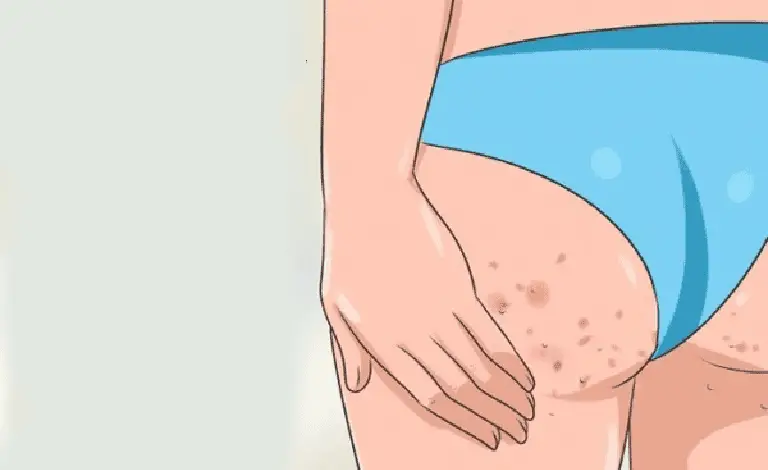Does Gluten Affect Keratosis Pilaris? Exploring the Connection
As a beautician, understanding skin conditions like keratosis pilaris is crucial to providing clients with informed advice and effective treatments. Many clients may come to you with various skin concerns, and one question that often arises is, 'Does gluten affect keratosis pilaris?' In this article, we'll delve into the potential link between gluten and keratosis pilaris, offering insights that could be valuable for your practice.

Understanding Keratosis Pilaris
Keratosis pilaris, often referred to as 'chicken skin,' is a common, harmless skin condition characterized by small, rough bumps on the skin. These bumps typically appear on the arms, thighs, cheeks, and buttocks. The condition is caused by a buildup of keratin, a protein that protects the skin from harmful substances and infection. When keratin clogs the hair follicles, it forms the rough, bumpy texture associated with keratosis pilaris. For more insights on this condition, you can check [this resource](https://www.webmd.com/skin-problems-and-treatments/keratosis-pilaris).
Exploring the Gluten Connection
Gluten, a protein found in wheat, barley, and rye, has been a topic of much debate in the world of nutrition and health. Some individuals have a sensitivity or intolerance to gluten, leading to various symptoms, including skin issues. While celiac disease, an autoimmune disorder triggered by gluten, is well-documented, the effects of gluten on other skin conditions like keratosis pilaris are still being explored.
Scientific Insights and Anecdotal Evidence
Currently, there is limited scientific evidence directly linking gluten to keratosis pilaris. However, anecdotal evidence suggests that some individuals experience improvement in their skin condition when they eliminate gluten from their diet. This has led to speculation that gluten might play a role in exacerbating keratosis pilaris for some people. As a beautician, it's important to listen to your clients' experiences and consider dietary factors when discussing skincare routines.
Dietary Changes and Skin Health
Encouraging clients to adopt a holistic approach to skincare can be beneficial. A diet rich in vitamins and minerals, such as vitamin A and vitamin E, may support skin health and potentially alleviate symptoms of keratosis pilaris. For more on how diet impacts skin health, explore our article on the [importance of sleep in skin health](https://livananatural.com/blogs/news/importance-of-sleep-in-skin-health).
Practical Tips for Managing Keratosis Pilaris
For beauticians seeking to assist clients with keratosis pilaris, offering practical skincare tips is essential. Here are some strategies to consider:
Moisturizing and Exfoliation
Regularly moisturizing the affected areas can help soften the skin and reduce the appearance of bumps. Recommend products that contain urea or lactic acid, as these ingredients can gently exfoliate and improve skin texture. Our guide on [urea cream for keratosis pilaris](https://livananatural.com/blogs/news/urea-cream-for-keratosis-pilaris) provides further insights.
Avoiding Harsh Products
Advise clients to avoid harsh soaps and skincare products that can irritate the skin. Instead, opt for gentle, hydrating cleansers that maintain the skin's natural barrier.
Consulting Dermatologists
If clients experience persistent or severe symptoms, recommend consulting a dermatologist. A professional can provide personalized advice and recommend medical treatments if necessary.

FAQs
Can a gluten-free diet improve keratosis pilaris?
While some individuals report improvements in their skin condition after eliminating gluten, there is no scientific consensus. It's worth trying a gluten-free diet to see if it makes a difference for you.
Are there any medical treatments for keratosis pilaris?
Yes, dermatologists may recommend treatments such as topical retinoids, laser therapy, or chemical peels to improve the appearance of keratosis pilaris.
Is keratosis pilaris related to other skin conditions?
Keratosis pilaris is often mistaken for other skin conditions like acne or eczema. It's important to get a proper diagnosis from a healthcare professional.
In conclusion, while the direct link between gluten and keratosis pilaris remains uncertain, it's essential for beauticians to stay informed and open-minded about dietary factors influencing skin health. By understanding your clients' unique needs and experiences, you can offer valuable insights and support in their skincare journey. For more information about keratosis pilaris, you can explore resources from [Cleveland Clinic](https://my.clevelandclinic.org/health/diseases/17758-keratosis-pilaris) and other reputable sources.

